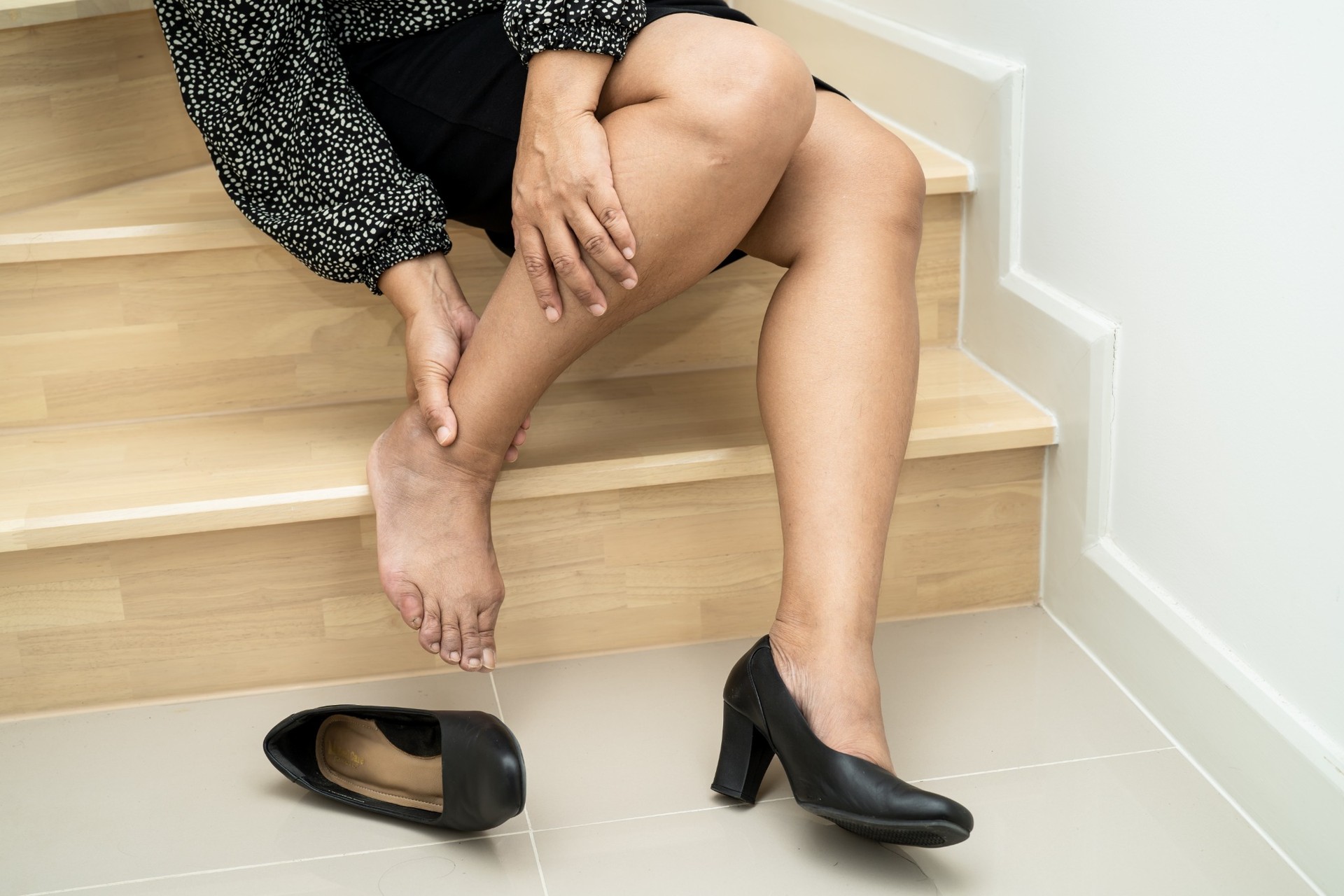California Personal Injury Statute of Limitations: Complete Guide

The statute of limitations for personal injury cases in California dictates how long you have to file a claim, and missing it can result in losing the opportunity to recover damages for your injuries.
While this is generally two years from the accident, there are different deadlines for various types of personal injury claims, as well as exceptions like the delayed discovery rule.
So you’re able to file a personal injury lawsuit in time, the experts from our law firm have put together this detailed guide.
What is the statute of limitations for personal injury in California?
The statute of limitations for personal injury in California sets the deadline for filing a lawsuit after an injury. It ensures that claims are made while evidence is still fresh and available. Missing this deadline typically means losing the right to seek legal compensation for your injuries.
Need help navigating the statute of limitations on injury claims?
Dealing with injury claims can be overwhelming, especially when it comes to legal deadlines. Our team at Feher Law is here to guide you through every step and ensure your claim is filed on time.
For more information on how we can help you claim within the allotted timeframe, visit our Torrance personal injury lawyer page.
California personal injury statute of limitations by injury type
Different types of personal injuries in California have varying statutes of limitations. Understanding these specifics ensures your claim is filed on time.
Note: unless specified otherwise, California Code of Civil Procedure Section 335.1 governs the official timeframes mentioned for injury type below.
Bicycle Accidents
For bicycle accidents, the statute of limitations in California is generally two years from the date of the incident. This period is critical for seeking compensation for injuries, medical expenses, and other damages incurred due to the accident. Filing within this timeframe is essential to preserve your right to legal recourse.
Boating Accidents
For boating accidents, the statute of limitations in California is generally two years from the date of the incident. Victims can seek compensation for medical expenses, property damage, lost wages, and pain and suffering. It’s important to act promptly to secure evidence and witness statements.
Brain Injuries
For brain injuries, the statute of limitations in California is typically two years from the date of the injury. Claims can cover medical bills, ongoing treatment costs, lost income, and diminished quality of life. Due to the severe impact of brain injuries, thorough documentation and expert testimony are often necessary.
Burn Injuries
Burn injuries in California generally have a statute of limitations of two years from the incident date. Victims may claim for medical treatment, rehabilitation, lost wages, and emotional distress. Burn injuries often require extensive medical care, making timely filing crucial to cover these significant expenses.
Car Accidents
The California car accident statute of limitations is typically two years from the date of the accident. Compensation can be sought for vehicle repair costs, medical expenses, lost wages, and pain and suffering. Prompt action helps in collecting necessary evidence like police reports and witness testimonies.
Additional reading: average settlement for broken bone in car accident
Construction Accidents
Construction accident claims in California must generally be filed within two years from the date of injury. Victims can seek damages for medical bills, lost income, rehabilitation costs, and pain and suffering. Construction accidents often involve complex liability issues, necessitating detailed evidence and documentation.
Dog Bites
The statute of limitations for dog bite claims in California is typically two years from the date of the incident. Victims may claim for medical expenses, lost wages, and emotional trauma. Dog bite cases often involve strict liability, meaning the owner is liable regardless of the dog’s history.
Drunk Driving Accidents
For drunk driving accidents, the statute of limitations in California is generally two years from the date of the accident. Victims can seek compensation for medical expenses, property damage, lost income, and punitive damages. These cases may also involve criminal charges against the driver, impacting the civil claim.
Intentional Infliction of Emotional Distress
Claims for intentional infliction of emotional distress in California generally have a statute of limitations of two years from the date of the incident. Damages can include compensation for emotional suffering, therapy costs, and loss of income. Such claims often require strong evidence of extreme and outrageous conduct.
Libel, Slander, and Defamation
As per California Code of Civil Procedure Section 340(c), the statute of limitations for libel, slander, and defamation in California is generally one year from the date the defamatory statement was made. Victims can seek damages for reputational harm, emotional distress, and economic losses. It’s crucial to act quickly to preserve evidence and witness statements.
To understand how a free consultation can help with your personal injury lawsuit, come and see how a San Bernardino personal injury lawyer can ensure your claim is filed with the California statute of limitations.

Mass Tort
Mass tort claims in California typically follow the same statute of limitations as the underlying cause of action, usually two years from the date of injury. These cases involve multiple plaintiffs against one or more defendants for damages such as medical expenses, lost wages, and pain and suffering. Coordination among plaintiffs is key to these complex cases.
Medical Malpractice
For medical malpractice cases, the statute of limitations in California is generally three years from the date of injury or one year from the date the injury was discovered, whichever occurs first. Claims can cover medical costs, lost wages, and pain and suffering due to professional negligence. Timely filing is essential due to the complexities involved. For details, refer to California Code of Civil Procedure Section 340.5.

Motorcycle Accidents
For motorcycle accidents, the statute of limitations in California is typically two years from the date of the accident. Victims may seek compensation for medical bills, repair costs, lost wages, and emotional distress. Given the severity of many motorcycle accidents, gathering comprehensive evidence is crucial.
Negligence
The statute of limitations for negligence claims in California is generally two years from the date of the incident. This applies to a wide range of personal injury cases, allowing victims to claim for medical expenses, lost income, and pain and suffering. Understanding the specifics of the California negligence statute of limitations is essential to ensure timely filing.
Nursing Home Abuse/Neglect
For nursing home abuse or neglect claims, the statute of limitations in California is typically two years from the date of the incident. Victims or their families can seek damages for medical expenses, pain and suffering, and punitive damages. Detailed documentation and timely action are crucial.
Pedestrian Accidents
For pedestrian accidents, the statute of limitations in California is generally two years from the date of the accident. Claims can cover medical costs, lost wages, and pain and suffering. Prompt filing is important to ensure the collection of vital evidence and witness accounts.
Product Liability
The statute of limitations for product liability claims in California is generally two years from the date of injury. Victims can seek compensation for medical bills, lost wages, and other damages resulting from defective products. Timely filing is essential to secure necessary evidence and expert testimony.
Slips and Falls
For slips and falls, the statute of limitations in California is typically two years from the date of the incident. Victims may claim for medical expenses, lost wages, and pain and suffering. Prompt action helps in preserving evidence like incident reports and witness statements.
Spinal Cord Injuries
For spinal cord injuries, the statute of limitations in California is generally two years from the date of the injury. Compensation can cover medical expenses, rehabilitation costs, lost wages, and pain and suffering. Spinal cord injuries often result in significant, lifelong impacts, making timely legal action crucial.
Truck Accidents
The statute of limitations for truck accidents in California is typically two years from the date of the accident. Damages may include medical bills, property damage, lost wages, and pain and suffering. Due to the severe nature of truck accidents, pursuing compensation promptly is essential.
Vaccine Injuries
For vaccine injuries, the statute of limitations in California can be different, often involving both state and federal laws, as governed by the National Vaccine Injury Compensation Program. The general timeframe is two years from the date of injury or within three years of the first symptom. Compensation can cover medical expenses, lost wages, and pain and suffering.
Work Injuries
Work injuries in California fall under the workers’ compensation system, as guided by the California Department of Industrial Relations. This requires claims to be filed within one year of the injury. Compensation includes medical treatment, temporary disability benefits, and permanent disability benefits. It’s important to report work injuries immediately to ensure timely filing.
Wrongful Death
The statute of limitations for wrongful death claims in California is generally two years from the date of death. Damages may include funeral expenses, loss of income, loss of companionship, and emotional distress. Filing within this period is critical to seek justice and compensation.
Personal Injury Statute of Limitations California Exceptions
While the general statute of limitations for personal injury cases in California is two years from the date of the injury, there are notable exceptions.
- Minors: The two-year period typically begins when the minor turns 18, allowing them to file a claim up to age 20. This extension ensures that young individuals have a fair opportunity to seek compensation once they reach adulthood.
- Mentally Incapacitated: If the injured party is mentally incapacitated, the statute of limitations may be tolled, or paused, until they regain mental capacity. This provision protects individuals who cannot make legal decisions from losing their right to seek justice due to their incapacity.
- Government Agency: When a government agency is involved, the statute of limitations is much shorter. Claims must be filed within six months from the date of the injury. This includes accidents involving public transportation, government property, or government employees. After the initial claim is filed and if it is denied, the injured party then has six months to file a lawsuit.
- Out of State: If the defendant is out of state for some time, the statute of limitations may be tolled until they return. This ensures that plaintiffs have the opportunity to file a claim even if the responsible party is temporarily unavailable, thereby preserving the right to seek compensation.
A Note on the Delayed Discovery Rule
The Delayed Discovery Rule in California allows the statute of limitations for personal injury cases to start from the date an injury is discovered, or reasonably should have been discovered, rather than the date the injury occurred. This rule is important for situations where the harm isn’t immediately apparent, such as medical malpractice cases where symptoms may surface much later.
For instance, if a patient undergoes surgery but only experiences complications months or years later, the two-year statute of limitations would begin from the date these complications were discovered. This ensures that individuals who suffer latent injuries still have the opportunity to seek compensation.
Potential Consequences of Missing the Deadline
Failing to file a personal injury claim in time generally results in losing the right to sue. This means you forfeit the chance to seek compensation for medical bills, lost wages, pain and suffering, and other damages related to your injury. Once the deadline passes, the defendant can file a motion to dismiss the case, which courts typically grant.
Missing this critical deadline not only affects your legal standing but can also impact the availability and reliability of evidence. Over time, physical evidence can degrade, and witness memories can fade, making it harder to build a strong case.
For example, if you were injured in a car accident and waited more than two years to file a claim, the court would likely dismiss your case, and you would be unable to pursue any compensation for your injuries.
Need Guidance on Statute of Limitations Injury Claims?
If you need help with the statute of limitation for personal injury in California, Feher Law is here to assist. Our experienced team will guide you through the process to ensure your claim is filed correctly and on time.
For confirmation of when the statute of limitations begins for your case and further expert guidance from a personal injury attorney, contact us today

Final Points on the CA Personal Injury Statute of Limitations
The statute of limitations for personal injury in California is generally two years from the date of injury. This timeframe is essential for seeking compensation for medical expenses, lost wages, and pain and suffering.
Certain exceptions, such as for minors, mentally incapacitated individuals, and cases involving government agencies, can alter this period. It’s important to be aware of these timelines to ensure your claim is valid and to secure the compensation you deserve.
Additional reading: negotiating medical bills after settlement
GET A FREE CONSULTATION
Our team is standing by and ready to assist you. Consultations are completely free and confidential. We will help you determine if you have a case.
- Over $100 Million Recovered For Clients
- No Fees Unless We Win
- We Fight for Maximum Compensation
- Get The Justice You Deserve
"*" indicates required fields
Related Posts



What to Do After a Slip and Fall Accident in California


California Civil Rights Lawsuit Settlement Amounts



